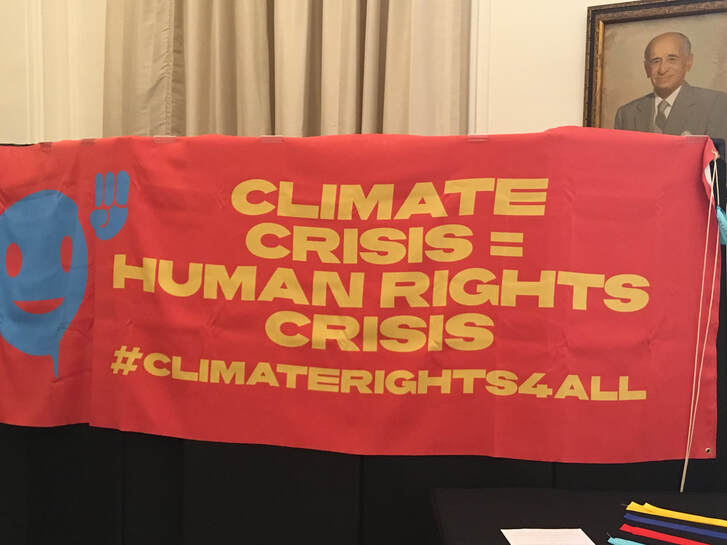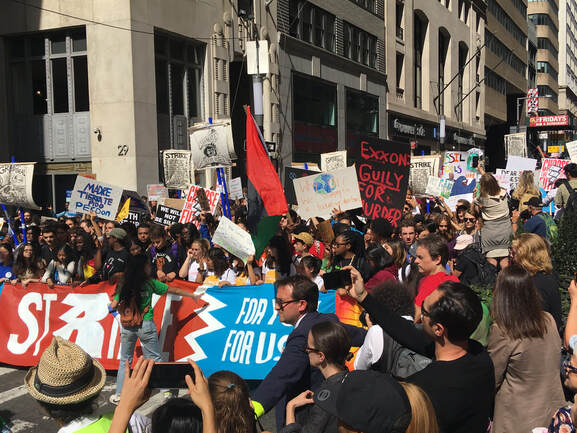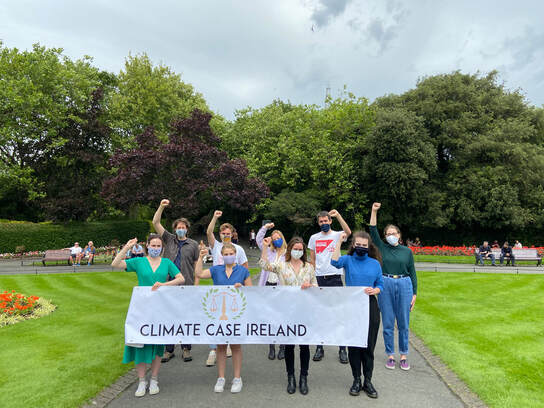|
Climate litigation is not going away any time soon. Lawsuits demanding accountability and action on the existential threat of climate change continue to take hold across the world with some significant new developments and new cases emerging over the past year, according to a new report on trends in global climate change litigation. That report, published July 3 by the London School of Economics’ Grantham Research Institute on Climate Change and the Environment, provides an overview of climate change lawsuits around the world including key developments between May 2019 and May 2020. Grantham Research Institute maintains a database of global climate change lawsuits and in recent years has issued annual reports on trends in climate litigation. Over the past three decades climate change lawsuits have spread across six continents with over 1,500 cases identified in 37 countries, according to the latest report. Most of these cases are in the U.S., though increasingly cases are emerging outside the U.S. including 26 new cases in the last year alone. The Global South (Asia, Africa and Latin America) has seen 37 cases of climate litigation to date. While a majority of climate-related lawsuits are routine cases such as challenges to fossil fuel permitting or regulatory procedures, cases are also being brought more strategically as a way to hold governments and companies accountable for damaging climate impacts. This kind of litigation against national governments and against fossil fuel companies has taken off in recent years. Continued Reliance on Human Rights Arguments Organizations and citizens are targeting governments, and in a few cases fossil fuel corporations, with lawsuits claiming human rights violations relating to the climate crisis. The report finds an “uptick in litigation relying on human rights arguments over the past 12 months.” The ultimate success of the Urgenda climate case in the Netherlands (capped by the Dutch Supreme Court ruling in December 2019) provides even greater impetus for cases using human rights arguments to compel swifter greenhouse gas emissions reductions by national governments. Such cases are currently pending in Ireland, France, Belgium, Sweden, Switzerland, Germany, the United States, Canada, Peru and South Korea, according to the report. Climate litigation is also seeing a “proliferation of cases involving young people,” the report notes. In March 2020 a group of young people in South Korea filed a lawsuit against the South Korean government claiming constitutional violations stemming from inadequate emissions reduction policy. It is the first climate lawsuit of its kind in East Asia. In September 2019 Greta Thunberg and 15 other young people brought a climate change legal complaint before the UN Committee on the Rights of the Child against Argentina, Brazil, France, Germany and Turkey. Young people are also suing governments in Canada and the U.S. using constitutional, rights-based arguments. Human rights are starting to emerge in litigation or quasi-judicial proceedings against large fossil fuel companies – companies that researchers have identified as “carbon majors.” A lawsuit in France against the oil company Total, for example, claims the company’s business is not aligned with a French law requiring corporations to identify and mitigate risks to human rights and the environment. Furthermore, according to initial findings of an investigation by the Human Rights Commission of the Philippines, major fossil fuel companies could be deemed legally liable for human rights violations arising from climate change. Diversifying Strategies in Lawsuits Against Carbon Majors Most litigation against fossil fuel companies or “carbon majors” relating to climate change is in the U.S. These cases are increasingly being brought with diverse legal theories including two new cases filed in June 2020 under state consumer protection statutes. The U.S. currently has over a dozen ongoing cases brought by local governments, as well as one state and commercial fishing association, seeking damages from fossil fuel companies to help pay for climate adaptation costs. These cases are brought under state nuisance and product liability claims, and recent court rulings including from two appeals courts, have favored the plaintiffs looking to advance their cases in state courts. Other cases have been brought against companies claiming investor and consumer fraud as well as misleading advertising. A high-profile investor fraud case brought by the New York Attorney General against ExxonMobil was dismissed last year, but three other attorneys general have since brought similar cases focusing on consumer fraud claims. Most recently, attorneys general in Minnesota and Washington DC brought consumer fraud lawsuits against Exxon and several other Big Oil defendants. Exxon is the target of another recent lawsuit filed by an environmental group called Beyond Pesticides alleging misleading marketing and advertising. Non-U.S. Climate Cases Tend to be More Successful According to the report, 58 percent of climate litigation lawsuits outside the U.S. had outcomes identified as favorable to climate action. “We have found looking at the data that outside of the United States, judges appear more inclined to support more effective climate action,” report co-author Rebecca Byrnes, policy analyst at the Grantham Research Institute, said in a press release. Even in cases that were not ultimately successful, like the landmark American youth climate lawsuit Juliana v. United States, there are indications that judges are grasping the gravity of the climate threat. “What we’re seeing in cases like…Juliana in the US Court of Appeals are decisions that did not rule in favour of the plaintiffs but that included statements that recognise the risks imposed by climate change, leaving the door open for future successes in different circumstances,” added report co-author Joana Setzer, Assistant Professorial Research Fellow at the Grantham Research Institute. Climate Protests and COVID Impact
The report also notes that 2019 saw waves of direct action and climate change protests such as the Extinction Rebellion uprisings and youth climate strikes, which could work as a complimentary strategy to litigation. “In some countries, litigation and direct protest were blended, forming part of a broader strategy of environment and climate advocacy,” the report states. This year, with the Covid-19 pandemic upending global society, it is unclear how that crisis will impact climate litigation. According to the report, it could result in a dampening of legal activity, or it could instigate new litigation such as cases linking the public health crisis to the climate crisis. Economic recovery packages that lock in more high carbon development, for example, could be challenged in court. A British climate litigation nonprofit called Plan B sent a letter on July 7 to the UK government threatening legal action over the government's COVID recovery plans. Plan B says the plans, which it calls a “new deal for polluters,” lock in a path towards 4˚C warming and violate the Paris Climate Agreement, the UK's 2050 target to reach net zero emissions, and the human right to life. In the post-COVID era, as the Grantham Research Institute report concludes, “climate litigation may remain as important as ever.” *Updated July 7, 2020 to include reference to the Plan B letter to the UK government
0 Comments
Story originally published by DeSmog UK
A lawsuit brought by an environmental group against the Irish government seeking more urgent action to stave off climate catastrophe and protect citizens came before the country's Supreme Court last week. If successful, it could have a ripple effect on courts being used to hold national governments to account for failing to slash emissions at the required pace to avoid the worst impacts of climate change. Climate Case Ireland, as the Irish lawsuit is called, challenges the country’s 2017 National Mitigation Plan. That policy sets out pathways for transitioning to a low carbon economy by 2050 but, as the lawsuit argues, does not include near-term requirements for rapidly reducing greenhouse gas emissions. Friends of the Irish Environment (FIE) is suing the government claiming that the 2017 policy is inadequate and violates Irish statutory law, the Irish Constitution, and the European Convention on Human Rights. According to FIE, data from the government’s own Environmental Protection Agency shows that Ireland’s emissions between 1990 and 2020 will increase by 11-12 percent, and the country is not on track to meeting its emission reduction goals by 2030. The case is one of only a handful of climate change lawsuits around to be heard before a nation’s highest court. In September 2019, the High Court in Dublin ruled in favour of the government, deciding the State has broad discretion to set policy. FIE appealed the ruling including a direct appeal to the Supreme Court, which accepted the case earlier this year. Hearings before seven Supreme Court judges took place June 22-23 at King’s Inns, Ireland’s oldest school of law. The case was heard there instead of the courthouse to allow for social distancing. Arguments The first day of hearings on 22 June featured arguments from Friends of the Irish Environment. According to a summary of the proceedings, FIE Senior Counsel Eoin McCullough told the Supreme Court judges that time is running out to act on the climate crisis and that Ireland is failing to reduce emissions with the urgency needed to safeguard human rights and protect citizens from increasingly severe climate impacts. Irish citizens’ constitutional rights, like right to life, are at risk due to climate change, McCullough argued. He said Ireland has a responsibility to act on climate change, but the 2017 National Mitigation Plan fails to provide emissions reductions in short and medium term. Over 20,000 Irish citizens have signed a petition in support of Climate Case Ireland. The Irish government, represented by attorneys Eileen Barrington and Rory Mulcahy, provided counter arguments on the second day of hearings on 23 June. The government argued that the National Mitigation Plan does not violate the Constitution or breach human rights obligations. FIE’s legal challenge is not reviewable by courts, the government argued, because it is an attack on policy choices that the government has authority to make. The government also argued that climate change is a global challenge and Ireland’s emissions are “tiny” in the global context. Responding to the government, Friends of the Irish Environment explained that Ireland still has an obligation to do its part in reducing emissions. The Supreme Court is expected to issue a ruling at a later date, possibly in the coming months. Following the Netherlands Climate Case Ireland is modeled after the groundbreaking climate lawsuit in the Netherlands brought by the Urgenda Foundation against the Dutch government. That case won an initial verdict in 2015 ordering the government to increase its level of emissions cuts by 2020 – the first time a court anywhere in the world had ordered a national government to take more aggressive climate action in order to help protect human rights. The Dutch government tried to appeal the ruling but lost, and last December the Supreme Court in the Netherlands upheld the lower court rulings and gave Urgenda a final victory. In the Urgenda case the courts determined that the Dutch government’s inadequate action on climate constituted a violation of the European Convention on Human Rights. The Irish Supreme Court could make a similar determination. The Supreme Court is also considering whether Ireland’s climate policy is a violation of the Irish Constitution. In 2017 an Irish court recognized that the right to a healthy environment is protected under the Constitution. “One of the most important decisions that will be coming down [from the Supreme Court] is whether the Irish Constitution contains this unremunerated right to a safe environment, bodily integrity and so forth,” said Patrick Parenteau, a professor of environmental and climate law at Vermont Law School who is familiar with the Irish case from a recent semester spent at University College Cork in Ireland. “The big questions are will the Supreme Court recognize a constitutional right, and will it recognize that the [European] Human Rights Convention applies to decisions made by the Irish government in addressing climate change?” So far, with a few exceptions such as the Urgenda case, courts generally have been unwilling to intervene in climate lawsuits challenging government policy. Courts in the U.S. and the UK, for example, have dismissed climate lawsuits largely over concerns that courts should not be directing climate policy. Should the Irish Supreme Court rule against the Irish government, it could set an example that governments can be held accountable in courts for their lack of urgent action on climate change. “I think the more that high courts like the Irish Supreme Court start coming down on the side of saying there is a role for the courts to intervene, that the governments are not doing what they need to be doing [on climate change], that probably gains some momentum,” Parenteau said. |
Archives
April 2024
Categories |



 RSS Feed
RSS Feed
